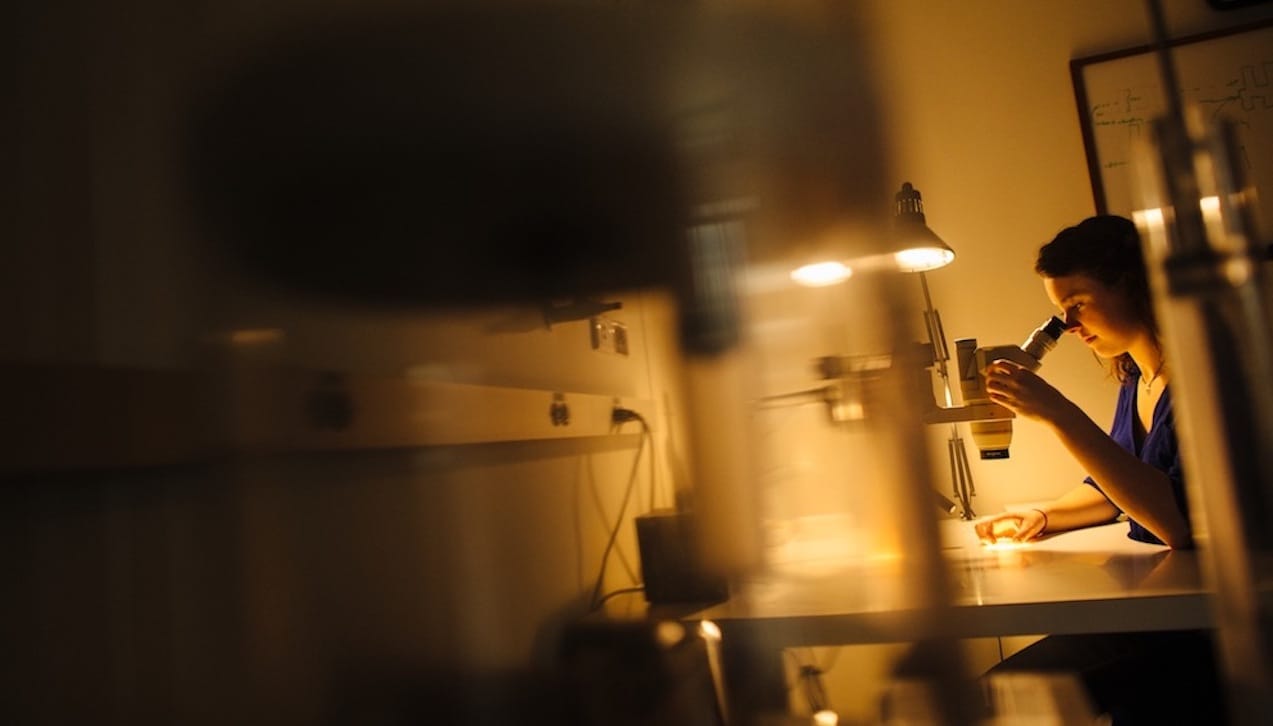First Graduates of Magis Honors Program at Scranton

Eight members of The University of Scranton’s class of 2020 became the first graduates of the University’s Magis Honors Program in STEM. The program, which began as a pilot program in the fall of 2017, combines the development of STEM knowledge and research techniques with programing to further the students’ understanding of the impact science has on society. The University’s Magis Honors Program in STEM was officially approved as the University’s fifth honors program in 2019.
The Magis Honors Program offers talented students a more intense, interdisciplinary experience of research in science, technology, engineering and mathematics (STEM). Courses taken over four years at Scranton combine a series of seminars on STEM and society with humanities courses. With guidance by faculty mentors, the students in the program develop, present and defend a thesis based on their individual research projects. In addition, the program requires participation in annual community service projects as well as professional development programs.
The following members of Scranton’s class of 2020 graduated as members of the Magis Honors Program in STEM.
Jack Charles Aversa III, Gouldsboro, worked with faculty research mentor Gary Kwiecinski, Ph.D., professor of biology, on a thesis titled “The Variation in Peak Frequencies of Echolocation Calls of a Neotropical Frugivorous Bat.” He was a biology and biomathematics double major at Scranton and the recipient of a Royal Scholars scholarship.
Maxwell L. Greene, Brewster, New York, worked with faculty research mentor Marc Seid, Ph.D., associate professor of biology, on a thesis titled “Simulating Resource Allocation Strategies in Annually Social Insects.” He was a neuroscience and applied mathematics double major at Scranton.
Brian P. Kilner, Potomac, Maryland, worked with faculty research mentor Arthur Catino, Ph.D., associate professor of chemistry, on a thesis titled “Progress towards Catalytic Enantioselective Friedel-Crafts Reactions for the Preparation of Chiral Tetraarylmethanes.” The recipient of the University's full-tuition Presidential Scholarship, Kilner was an environmental science, biochemistry and philosophy triple major and a member of the University's Special Jesuit Liberal Arts Honors Program.
Nolan K. McLaughlin, Moscow, worked with faculty research mentor Katherine Stumpo, Ph.D., associate professor of chemistry, on a thesis titled “Imaging of neurotransmitters using AuNPs with Laser-Desorption Ionization Mass Spectrometry.” He was a neuroscience major at Scranton.
Liam Michael O’Hare, Branchburg, New Jersey, worked with faculty research mentor Oleksandr (Alex) Rudniy, Ph.D., assistant professor of computer science, on a thesis titled “Automating the Deployment/Termination of Virtual Machines.” He was an information technology major at Scranton.
Robert Glenn Rade, Jr., Scranton, worked with faculty research mentor Janice Voltzow, Ph.D., professor of biology, on a thesis titled “Effect of Increased Temperature and Elevated Carbon Dioxide on the Density of the Symbiotic Dinoflagellate (Symbiodinium spp.) in the Sea Anemone Exaiptasia pallida.” He was a biology major at Scranton and the recipient of a Royal Scholars scholarship.
Meagan Riley Scheider, Parlin, New Jersey, worked with faculty research mentor Anne Royer, Ph.D., assistant professor of biology, on a thesis titled “Quantifying Migration in Crotalus horridus.” She was an applied mathematics and biomathematics double major at Scranton.
Joshua Matthew Toth, Jefferson Township, worked with faculty research mentor Robert Spalletta, Ph.D., professor of physics and electrical engineering, on a thesis titled “Investigation of Material Hardness and Mesoscale Friction Properties of the Camponotus floridanus Cuticle as Determined by Atomic Force Microscopy.” The recipient of the University’s full-tuition Presidential Scholarship, Toth was a biophysics and physics double major and a member of the University's undergraduate Honors Program.






